All about greenwashing
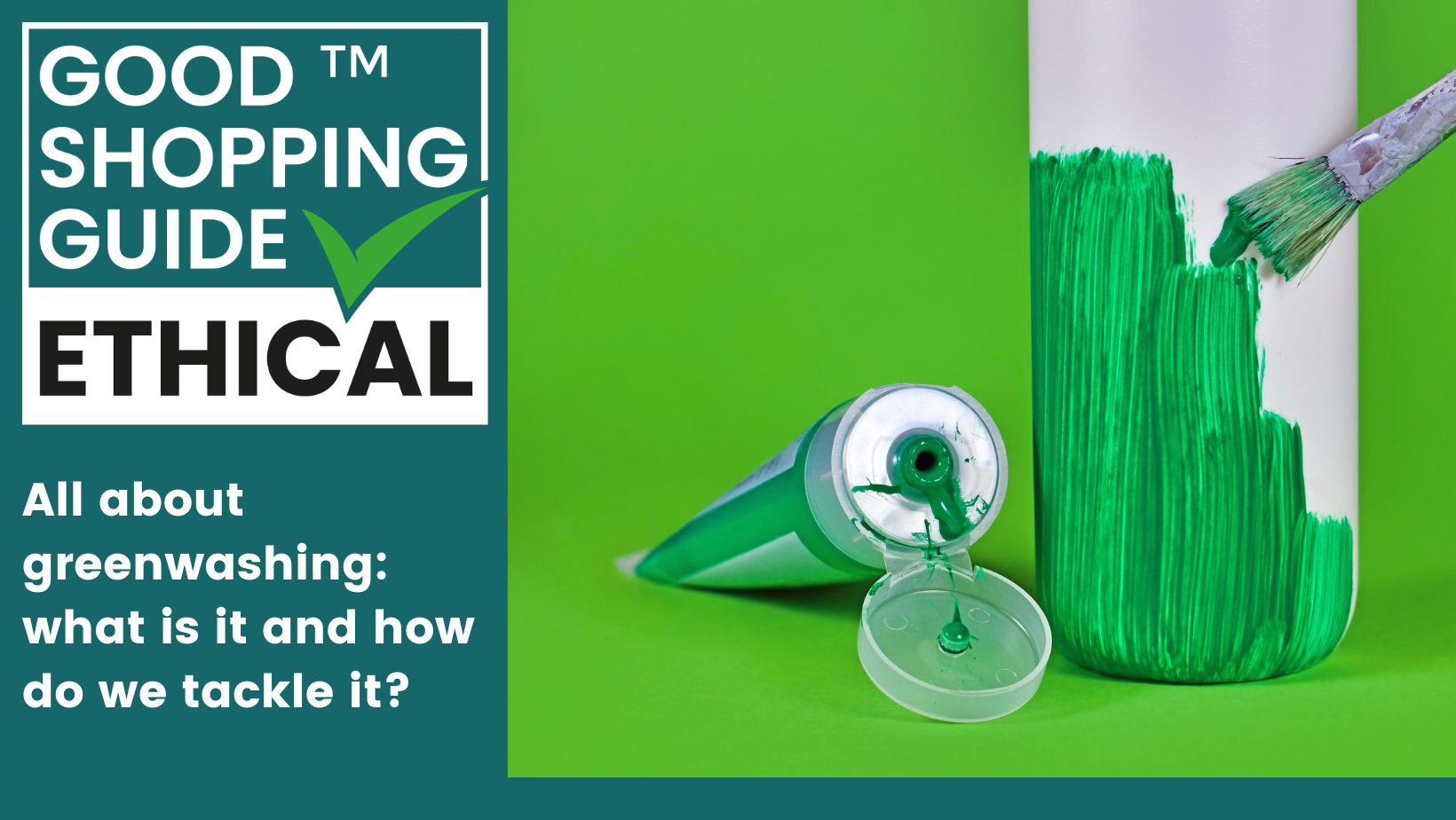
At The Good Shopping Guide, we often talk about greenwashing and how it presents a major problem to consumers who want to purchase genuinely ethical products. But what actually is greenwashing? And what can we do to challenge it? Read this article to find out.
What is greenwashing and why is it a problem?
Oxford Dictionary defines ‘greenwashing’ as: “To misrepresent (a company, its operations, etc.) as environmentally responsible.”
Essentially, what this means is that many companies are lying or being deliberately deceptive about how ethical or sustainable they are. Businesses greenwash so that the public views a brand, company or product favourably. Ultimately, greenwashing is a marketing tool, with the goal of convincing consumers to purchase their products or services.
The major problem with greenwashing is that consumers may struggle to differentiate between products that are truly ethical and products that are simply claiming to be ethical. Without spending hours doing your own research into a product or brand, it is difficult to figure out whether a business is being genuine or not.
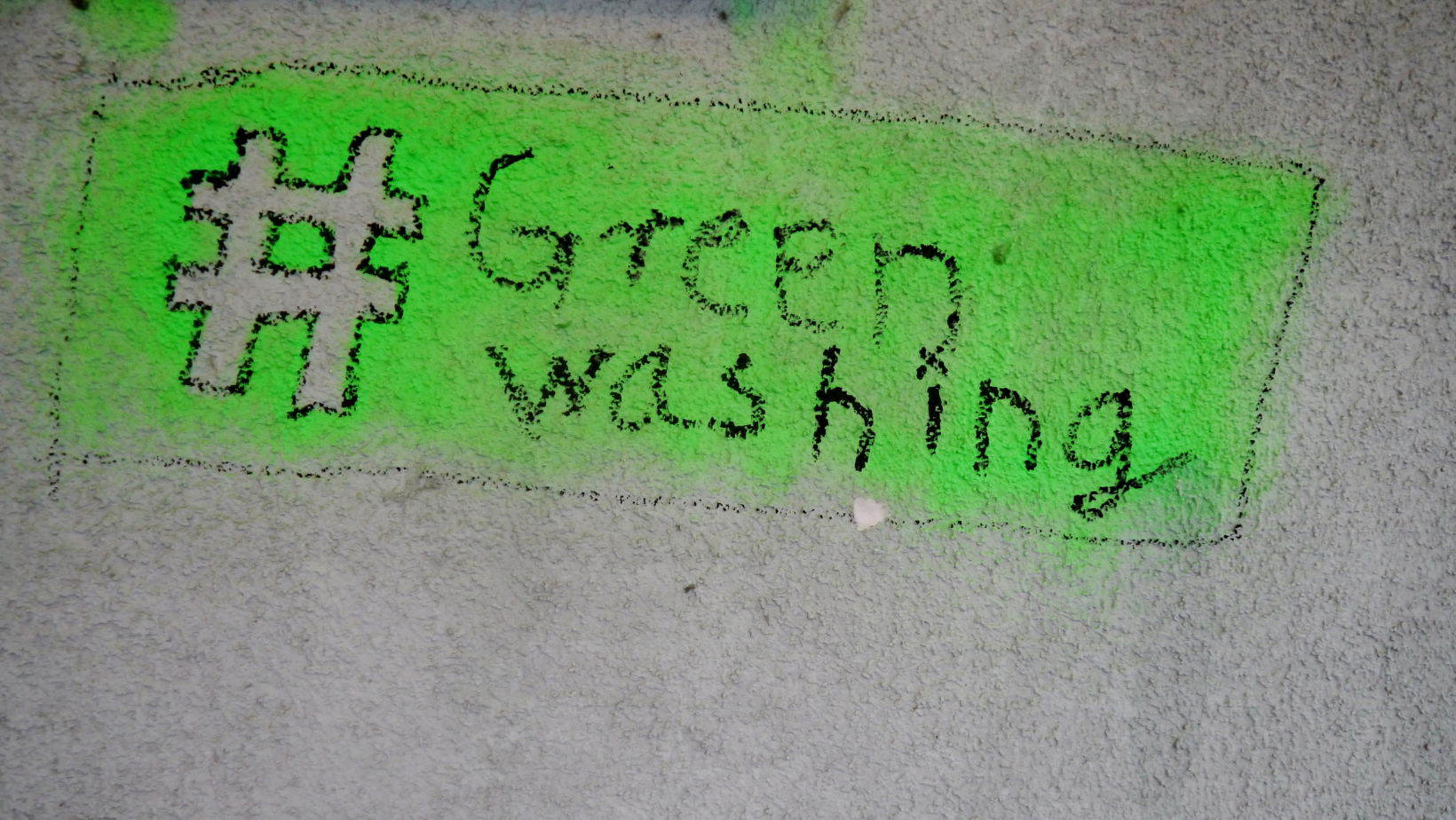
Examples of greenwashing and tips for how to spot it
Greenwashing is becoming harder to spot, with companies being increasingly deceptive in their marketing practices. Numerous environmental groups, such as Greenpeace, Friends of the Earth and WWF, have spoken up about greenwashing in recent years, which shows how big the problem has become. We will now show you some examples of greenwashing and include some tips on how to identify it in every day situations.
‘Fake’ logos and certifications
The first thing to mention is logos and certifications. Brands and products will often display logos on their websites or packaging to provide ‘evidence’ for their claims. Many of these logos come from reputable third-party organisations with rigorous standards and assessment processes. Examples of genuine certifications include:
- Cruelty Free International Leaping Bunny (confirms a product is not tested on animals)
- The Vegetarian Society or The Vegan Society (confirms a product is vegetarian or vegan)
- Soil Association, Organic Farmers and Growers or Organic Food Federation (confirms a product is organic)
- The Fairtrade Foundation (confirms a product meets Fairtrade standards)
- The Good Shopping Guide Ethical Accreditation (our catch-all certification for ethical businesses)
However, some brands will display ‘fake’ logos, designed by themselves, to give the impression that their product(s) has been approved by a third-party organisation. For instance, some brands will use an image of a generic cartoon bunny to mimic the Cruelty Free International logo, such as the examples given in this article by AIGA but these logos are misleading as they do not guarantee that a product is cruelty-free.
There are many other examples of made-up logos displayed on products and websites. The best way to get around this is to check if you recognise the logo and whether it is linked to any legitimate organisations.
Ethical brands owned by unethical companies
Another example of greenwashing is when a seemingly ethical brand is owned by a large corporation which is involved in a range of unethical activities behind the scenes. Two examples of this are Good Earth, owned by Tata Group and pet food brand Lily’s Kitchen, a subsidiary of Nestlé.
Good Earth is a tea brand which claims to prioritise sustainability and ethics through practices such as using biodegradable tea bags and donating to 1% for the Planet. Whilst these features of Good Earth aren’t necessarily untrue, the activities of Good Earth’s parent company, Tata Group, undermines the brand’s ethical commitments.
Tata Group is involved in many unethical and unsustainable activities. This includes working with the oil and gas, nuclear power and weapons industries, as well as having links to suppliers involved in human rights abuses. If consumers knew this when looking at Good Earth’s products, they may be reluctant to purchase them.
Similarly, Lily’s Kitchen is a pet food brand which sells sustainable cat and dog food, which gives the impression that by purchasing from them, you’re supporting a brand that cares for the planet. However, Nestlé, the owner of Lily’s Kitchen, is often considered one of the world’s most unethical companies. Notably, Lily’s Kitchen appears to be a brand that cares about pets and animal welfare. But many are unaware that Nestlé is involved in animal testing.
One way of ensuring that the brand you are thinking of buying from is truly ethical is by checking their score and parent company in The Good Shopping Guide. Alternatively, you can look them up on Wikipedia or check the small print on the company’s website.
False or misleading claims
In some cases, brands may simply lie about the sustainability of their business practices or products. A notable example of this is Bondi Sands, which was hit with a class action lawsuit in 2022 for allegations of greenwashing.
According to a report in The Sydney Morning Herald, Bondi Sands was accused of falsely marketing its environmentally harmful sunscreens as ‘reef-safe’. Despite promoting the products as such, the lawsuit alleges that several of its sunscreens contain avobenzone, homosalate, octisalate and octocrylene – ingredients which are known to harm coral reefs.
In these situations, it is very difficult to identify whether a business is telling the truth, especially in cases where the lies have not yet been brought to light. However, our research at The Good Shopping Guide will spot these issues, so checking a brand’s rating on our website is always a good place to start.
How The Good Shopping Guide helps tackle greenwashing
It takes lots of time and research to get to the truth behind a brand and find out whether they are greenwashing or not. At The Good Shopping Guide, we pride ourselves on being able to do all the work for you, so that you can identify which brands are greenwashing and which are telling the truth in a few simple clicks. This is why our motto is choose fact, not fiction!
By using our search function, you can type in a brand you’re curious about to see how it scores on our website and how it ranks against other brands within the industry. Currently, The Good Shopping Guide publishes up-to-date ethical research on over 1700 brands, so you’re likely to find the one you’re looking for.
We are proud to be a trusted resource for ethical consumers that want quick and easy answers on whether a brand is ethical or not. By following our guide, and using the tips we have provided today, you can easily cut through the greenwashing and identify brands that are genuinely ethical.
Share
Related articles
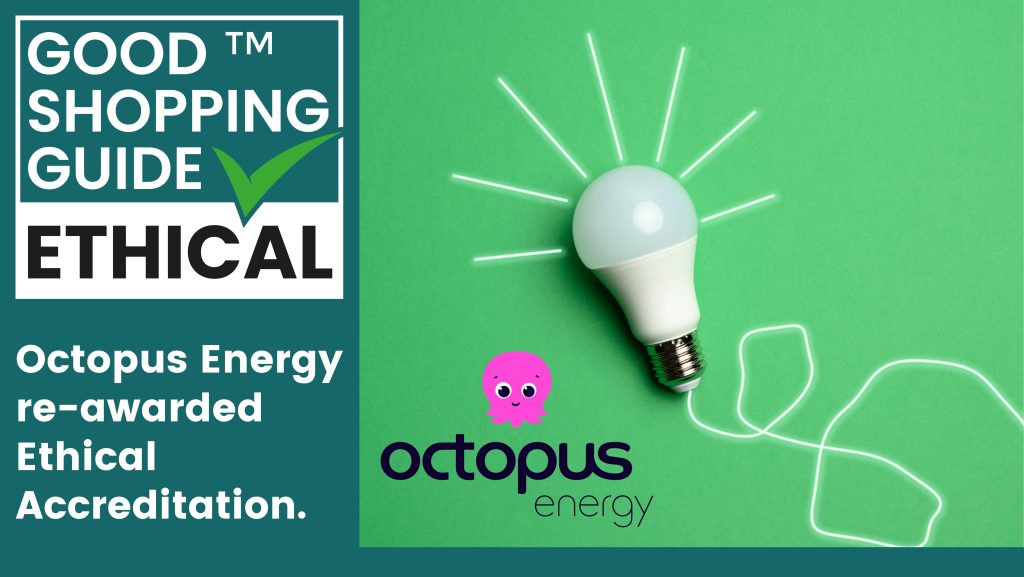
Octopus: Energy of the Future
Octopus continues to be a certified Ethical Energy Supplier in 2025.
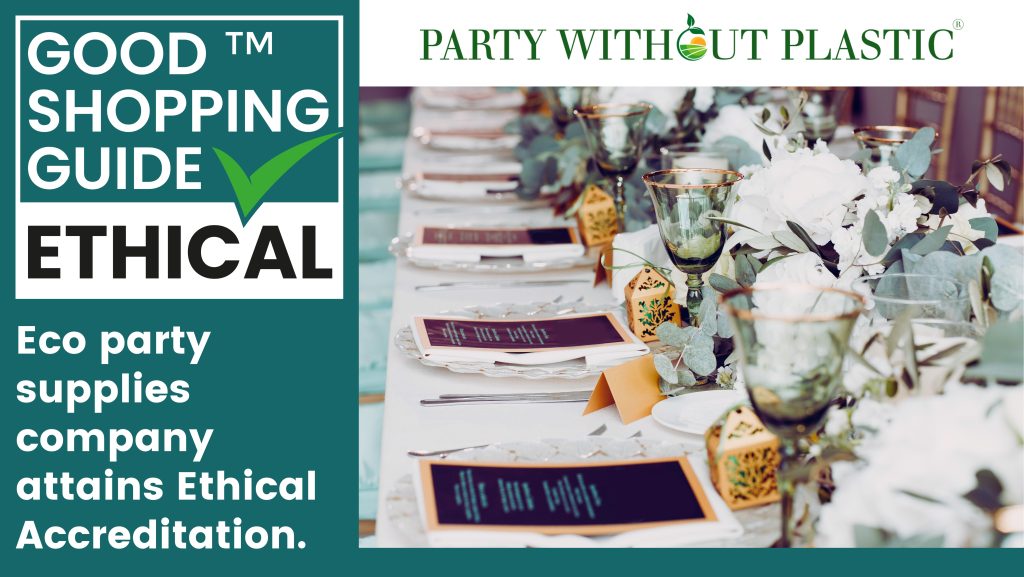
Party Without Plastic: Celebrating Sustainable Success
A better way to party, with eco-friendly party and wedding supplier Party Without Plastic.
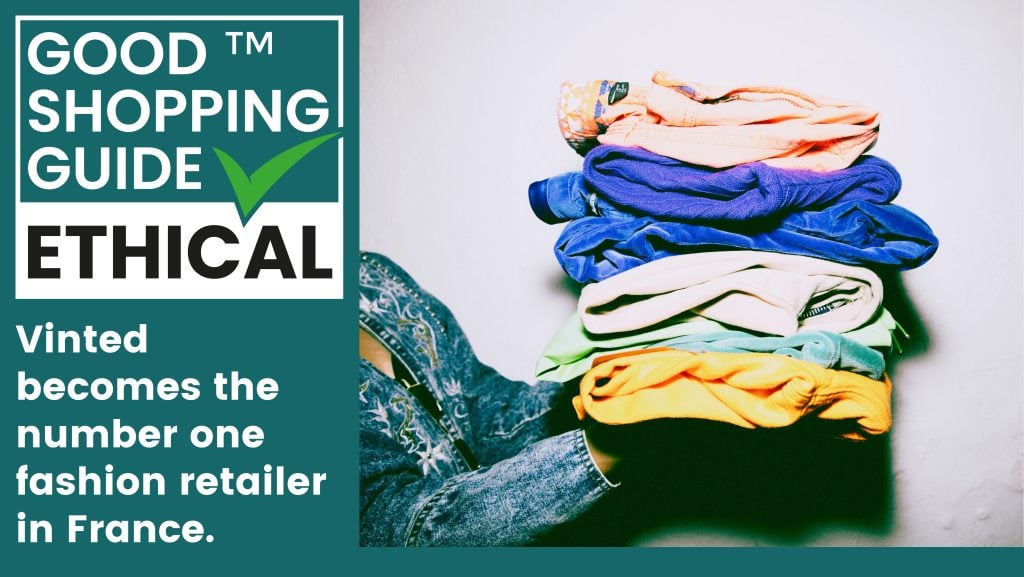
Is this the tipping point for fast fashion?
The GOOD Shopping Guide has supported sustainable alternatives to fast fashion for 25 years.